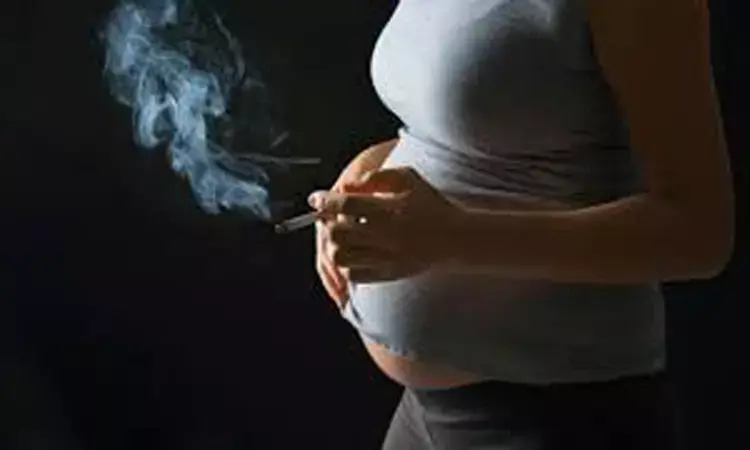- Home
- Medical news & Guidelines
- Anesthesiology
- Cardiology and CTVS
- Critical Care
- Dentistry
- Dermatology
- Diabetes and Endocrinology
- ENT
- Gastroenterology
- Medicine
- Nephrology
- Neurology
- Obstretics-Gynaecology
- Oncology
- Ophthalmology
- Orthopaedics
- Pediatrics-Neonatology
- Psychiatry
- Pulmonology
- Radiology
- Surgery
- Urology
- Laboratory Medicine
- Diet
- Nursing
- Paramedical
- Physiotherapy
- Health news
- Fact Check
- Bone Health Fact Check
- Brain Health Fact Check
- Cancer Related Fact Check
- Child Care Fact Check
- Dental and oral health fact check
- Diabetes and metabolic health fact check
- Diet and Nutrition Fact Check
- Eye and ENT Care Fact Check
- Fitness fact check
- Gut health fact check
- Heart health fact check
- Kidney health fact check
- Medical education fact check
- Men's health fact check
- Respiratory fact check
- Skin and hair care fact check
- Vaccine and Immunization fact check
- Women's health fact check
- AYUSH
- State News
- Andaman and Nicobar Islands
- Andhra Pradesh
- Arunachal Pradesh
- Assam
- Bihar
- Chandigarh
- Chattisgarh
- Dadra and Nagar Haveli
- Daman and Diu
- Delhi
- Goa
- Gujarat
- Haryana
- Himachal Pradesh
- Jammu & Kashmir
- Jharkhand
- Karnataka
- Kerala
- Ladakh
- Lakshadweep
- Madhya Pradesh
- Maharashtra
- Manipur
- Meghalaya
- Mizoram
- Nagaland
- Odisha
- Puducherry
- Punjab
- Rajasthan
- Sikkim
- Tamil Nadu
- Telangana
- Tripura
- Uttar Pradesh
- Uttrakhand
- West Bengal
- Medical Education
- Industry
Drinking and smoking after first trimester of pregnancy raises risk of stillbirth: JAMA

Dual exposure to smoking and drinking after the first trimester of pregnancy is associated with the risk of late stillbirth by nearly 3 times.
USA: Combined drinking and smoking after the first trimester of pregnancy significantly increases the risk of late stillbirth (at 28 or more weeks) by nearly three-fold compared with no exposure or quitting before the end of the first trimester, a recent study has found. The study is funded by the National Institutes of Health (NIH) and published in JAMA Network Open.
Prenatal smoking although is known to increase stillbirth risk, the researchers performed the study to examine smoking combined with alcohol use might influence the risk. The researchers also confirmed the higher stillbirth risk from alcohol alone, which has been suggested by earlier, less comprehensive studies.
The study was conducted by researchers in the Prenatal Alcohol in SIDS and Stillbirth (PASS) Network and appears in JAMA Network Open. Funding was provided by NIH's Eunice Kennedy Shriver National Institute of Child Health and Human Development (NICHD), National Institute on Alcohol Abuse and Alcoholism (NIAAA), and National Institute on Deafness and Other Communication Disorders (NIDCD).
The study followed nearly 12,000 pregnancies among more than 8,500 women in South Africa and the U.S. Northern Plains. Compared to the pregnancies of women who did not drink or smoke or who quit both before the second trimester, women who drank and smoked through the first trimester and beyond had 2.78 times the risk for late stillbirth. Previously, the PASS Network found that the risk of Sudden Infant Death Syndrome, or SIDS, was 12 times higher in pregnancies exposed to maternal drinking and smoking past the first trimester.
NIAAA warns against drinking any alcohol during pregnancy because it can result in birth defects and neurodevelopmental abnormalities. The U.S. Centers for Disease Control and Prevention notes that smoking during pregnancy increases the risk for pregnancy complications, preterm birth, sudden infant death syndrome, and infant health problems.
Reference:
The study titled, "Association of Prenatal Exposure to Maternal Drinking and Smoking With the Risk of Stillbirth," is published in JAMA Network Open.
DOI: https://jamanetwork.com/journals/jamanetworkopen/fullarticle/2783302
Hina Zahid Joined Medical Dialogue in 2017 with a passion to work as a Reporter. She coordinates with various national and international journals and association and covers all the stories related to Medical guidelines, Medical Journals, rare medical surgeries as well as all the updates in the medical field. Email: editorial@medicaldialogues.in. Contact no. 011-43720751
Dr Kamal Kant Kohli-MBBS, DTCD- a chest specialist with more than 30 years of practice and a flair for writing clinical articles, Dr Kamal Kant Kohli joined Medical Dialogues as a Chief Editor of Medical News. Besides writing articles, as an editor, he proofreads and verifies all the medical content published on Medical Dialogues including those coming from journals, studies,medical conferences,guidelines etc. Email: drkohli@medicaldialogues.in. Contact no. 011-43720751


